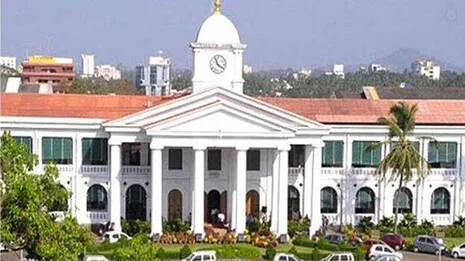
While price estimates are still being refined, a large-scale fuel plant proposed for the Tk’emlups reserve could cost more than $1 billion. Azure Sustainable Fuels Corp. is partnering with Tk’emlups te Secwepemc and Sc.
wenwen Economic Development Corporation on the proposed project, called 7 Mile Renewable Fuels. The refinery, planned for a parcel of land along the CN Rail tracks south of Rayleigh, would turn vegetable oils like canola and soybean oil into low-carbon jet fuel — a product Azure says is already being used by airlines like WestJet and Air Canada. Vanessa Vredenburg, Azure’s director of Indigenous and stakeholder relations, told Castanet Kamloops a front-end engineering and design study, expected to be complete by the end of the year, will provide a better idea of the project cost.

“I can't say that we have a specific cost, but I will say it is north of $1 billion for one phase,” Vredenburg said. “That being said, Azure can't do it on their own. We're going to be looking for government support, for investors.
It's going to take more than just us to actually get this across the line.” Once fully constructed, the company estimates the facility, which may stretch across an estimated 40 acres of land, could produce about 20,000 barrels of low-carbon jet fuel per day. A delegation presented plans for the plant in front of the City of Kamloops council’s , and community members were on Wednesday.
Vredenburg said organizers were happy they received a good turnout for the open house. She said they heard a lot of questions from attendees, particularly in regard to the environment. People asked about the potential for air, water, odour and visual impacts, and were also curious about jobs and training.
Vredenburg said they heard all kinds of feedback — negative and positive. “The louder voices tend to be the ones that sometimes are a bit more negative, but we did request people to fill out feedback forms, and we're seeing that there is a lot of positivity as well,” she said. Vredenburg said odour was a key open house topic, and felt project proponents were able to address these concerns at the meeting.
She added she heard excitement about “green energy,” and the economic impact the project could have for the region. “We're in the early stages of the project, so this is really just the beginning. So we're just trying to get out there, let people know what we're doing, and we really want to hear feedback,” she said.
Krista Stoesz, economic development officer with Sc.wenwen, said in a statement that more than 100 attendees attended the open house event in person, and more than 30 joined online. “We’ve seen strong participation through the online questions submission platform, and are committed to posting responses on the website in the coming month,” she said.
“Feedback so far highlights a mix of perspectives and a clear call for more information. We want to emphasize that this project is in the early stages, and as studies and reports are completed, more data will be shared.” Stoesz said continued engagement efforts will prioritize Tk’emlups te Secwepemc membership on and off reserve, followed by City of Kamloops residents, businesses and neighbouring communities.
Azure has said they plan to build a cross-Canada network of sustainable aviation fuel plants — one on Tk’emlups land, another in Manitoba and a third in Ontario. A number of site and field assessments have already been completed. An archaeology impact study is expected to be complete in 2025, and regulatory applications will continue into 2026.
Construction will begin later that year, and there’s an anticipated start up date of 2028. An Azure project manager said at the open house that the project would produce about 1,500 jobs during construction and 150 once operational, including power engineers, electricians and accountants. More information on the project can be .
.










